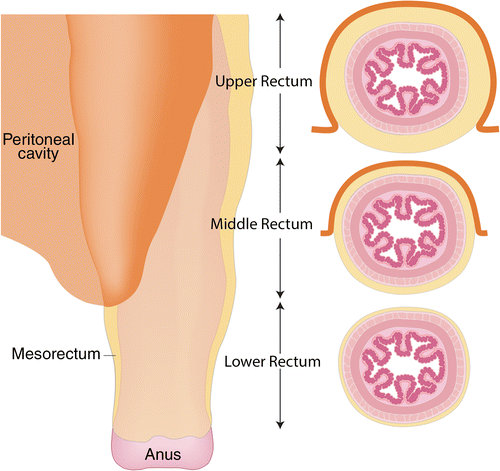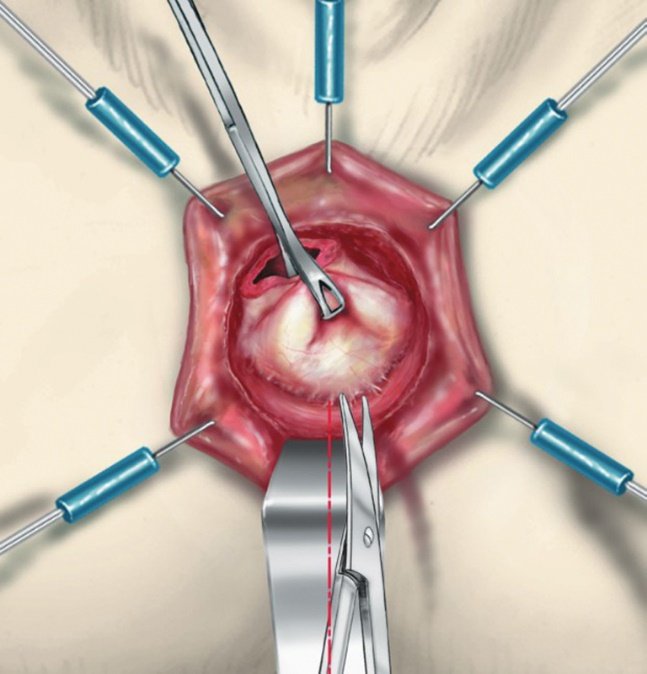Rectal cancer, the second leading cause of cancer deaths, develops in the rectum that connects the colon and the anus. Low rectal cancers are challenging to treat due to limited access and visibility.
“Nowadays, things are changing with innovative surgical techniques like Intersphincteric resection (ISR) surgery. This procedure is used to treat rectal cancer located very low in the rectum, near the anus,” says Dr. Sandeep Nayak, a surgical oncologist in India, who is the Chairman – Oncology Services, Karnataka, India and Executive Director – Surgical Oncology and Robotic Surgery, KIMS Hospital, Bangalore

“ISR rectal cancer surgery is generally considered a safe and effective treatment option, as it allows the surgeon to remove the cancerous tissue while preserving the function of the anus and the sphincter muscles that control bowel movements,” he further explains.
Low rectal cancer is located within 6 cm of the anal verge. Treating this type of cancer is difficult due to its position and requires careful assessment and discussion.
Now, surgeons replace APR with ISR surgery, a procedure that keeps the sphincter intact and lowers the likelihood of permanent colostomy. ISR coupled with neoadjuvant therapy is becoming more and more accepted for low rectal cancer.
Dr. Sandeep Nayak is an expert in laparoscopic and robotic surgery. He has performed for than 300 low anterior resection rectal cancer surgery using ISR. He is also the Founder of MACS Clinic, an exclusive centre for advanced cancer surgery.
How is ISR beneficial for very low rectal cancer?
There are several benefits to ISR surgery for very low rectal cancer
- Preservation of anal function: ISR surgery is designed to remove the cancerous tissue while preserving the function of the anus and the sphincter muscles. This can help to reduce the risk of incontinence and other complications that can occur after surgery.
- Allows shorter hospital stay: Depending on the specifics of the case, ISR may be associated with a shorter hospital stay compared to other surgical approaches.
- Better cosmetic results: As ISR rectal cancer surgery is a less invasive surgical option, it can result in better cosmetic results and a faster recovery.
- Improved quality of life: By preserving the function of the anus and the sphincter muscles, ISR surgery can help to improve the patient’s quality of life.
Overall, ISR surgery is generally considered to be a safe and effective treatment option fro very low rectal cancer.
It is important to discuss the potential risks and benefits of ISR surgery with an expert surgical oncologist to determine the best treatment plan for your specific situation.
“ISR surgery is not a suitable treatment option for all people with very low rectal cancer,’ explains Dr. Sandeep Nayak, a highly experienced surgical oncologist in India. “The decision to proceed with ISR will depend on a variety of factors, including the size and stage of cancer, the overall health of the patient, and the surgeon’s preference. A thorough evaluation by a colorectal surgeon is necessary to determine the most appropriate treatment plan.”
Types of Intersphincteric Resection

Treatment for rectal cancer typically involves surgery to remove the cancerous tissue and chemotherapy and radiation therapy to kill any remaining cancer cells. The type of surgery and other recommended treatments will depend on the stage and location of the cancer and the patient’s overall health.
ISR surgery helps preserve the anus in around 90 percent of patients with low rectal cancer, thereby avoiding a permanent stoma.
There are different types of ISR surgery, such as:
Total ISR –
This procedure is performed if the tumor has advanced past the dentate line. During this procedure, the internal sphincter is completely removed, leaving the intersphincteric groove as the resection’s distal limit.
Subtotal ISR –
A subtotal ISR is conducted in cases where the tumor’s distal edge is more than 2 cm distant from the dentate line, thereby obtaining the distal resection margin between the dentate line and the intersphincteric groove.
Partial ISR –
Distal or partial resection is ideally conducted at or above the dentate line if sufficient distal surgical margin is present.
Outlook

Compared to abdominoperineal resection, intersphincteric resection (ISR) is an ideal anus-sparing treatment option for low rectal cancer.
Robotic ISR allows excellent vision, efficient traction for careful pelvic dissections, and optimal hemostasis during levator-sphincter dissection.
Compared to the open surgical approach, the robotic approach efficiently allows for anus-preserving resection in patients with low rectal tumors.
However, to perform this intricate surgery, you need an expert surgical oncologist who has an in-depth understanding of the deep pelvic anatomy and careful patient selection.
If you seek detailed information about ISR low anterior rectal resection, consult a surgical oncologist in India with vast experience in performing this surgery.
Frequently Asked Questions
When is low anterior resection done?
Low anterior resection (LAR) is a surgical procedure to remove a portion of the rectum. It is typically done to treat cancer or other conditions that affect the lower part of the colon and rectum.
What is R1 resection in rectal cancer?
R1 resection involves removing the rectum’s cancerous portion and a small margin of healthy tissue around it. The goal of the surgery is to remove as much cancer as possible while minimizing the risk of recurrence.
Is surgery always necessary for rectal cancer?
Surgery is often a necessary part of treatment for rectal cancer. The specific type of surgery recommended will depend on the stage and location of cancer, as well as the patient’s overall health and preferences.
What is low rectal carcinoma?
Rectal carcinoma is a type of cancer that affects the rectum, which is the final portion of the large intestine that connects the colon to the anus. Low rectal carcinoma refers to cancer located in the lower part of the rectum, closer to the anus.


